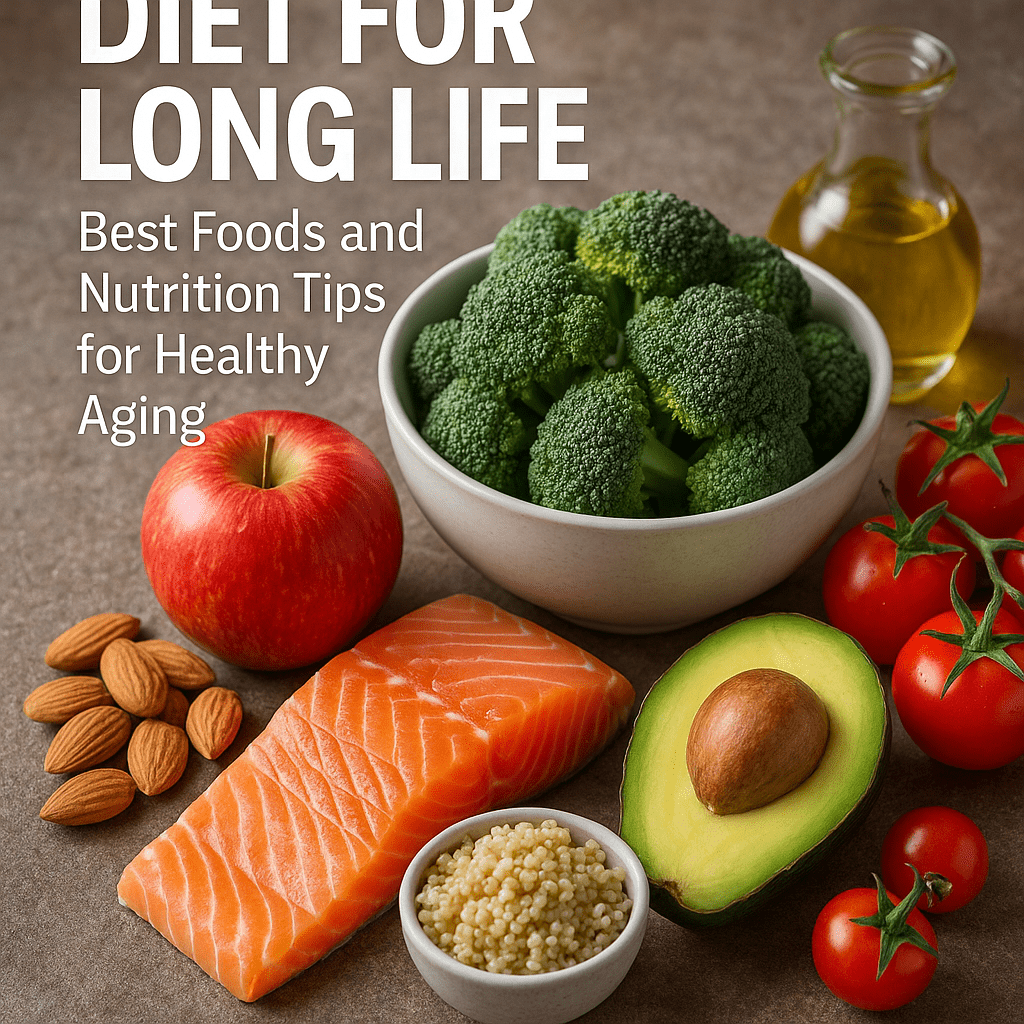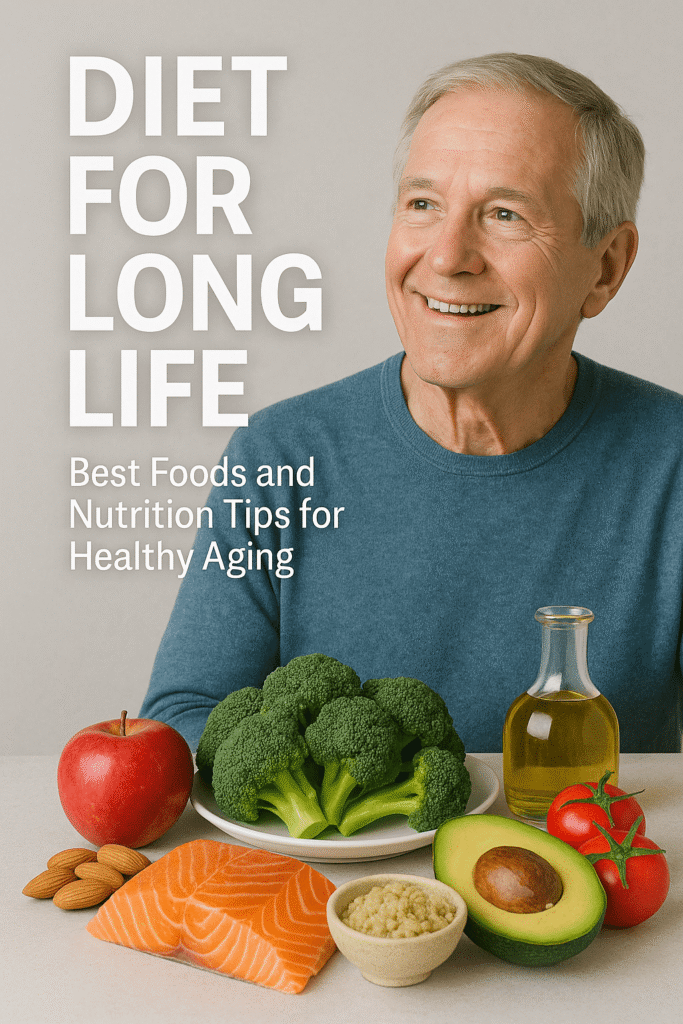Diet for Long Life: The Delicious Path to Living Longer
Introduction
With life expectancy influenced by genetics, lifestyle, and environment, nutrition remains a powerful factor we can control.
From the Mediterranean and DASH diets to plant-based eating and Blue Zone traditions, research consistently shows that the
best diet to live a long life emphasizes whole, nutrient-rich foods while limiting processed ones. This comprehensive guide examines evidence, compares leading dietary patterns, and offers actionable advice.
You’ll also see expert perspectives, latest research, and a practical roadmap to implement the diet strategies most associated
with longevity. If you’re ready to optimize your healthspan, start with our recommended starter bundle of
Mediterranean staples—a simple way to adopt habits proven to support a longer life.
Defining a Longevity Diet
Asking “What is the best diet for long life?” doesn’t mean searching for a single miracle plan.
Instead, longevity diets share common pillars:
- High intake of vegetables, fruits, legumes, and whole grains
- Healthy fats, especially olive oil and omega-3-rich fish
- Limited processed foods, sugars, and red meats
- Consistent, moderate calorie intake with nutrient density
Why Diet Shapes Longevity
Poor diets fuel the leading causes of premature death: cardiovascular disease, type 2 diabetes, and certain cancers.
Diets low in fiber and high in refined carbs, sugars, and processed meats increase inflammation, oxidative stress,
and metabolic dysfunction—all accelerating aging.
Strategies to Live Longer Through Nutrition
Mediterranean Diet
Rich in olive oil, nuts, vegetables, and fish, the Mediterranean diet consistently tops lists when people ask,
“What is the best diet for long life?” Studies link it to lower heart disease, stroke, and dementia risk.
DASH Diet
Originally designed for hypertension, the DASH diet emphasizes vegetables, fruits, whole grains, and low-fat dairy while limiting sodium intake.
It has been proven to improve cardiovascular outcomes.
Blue Zone Diets
In regions where people live the longest—Okinawa, Sardinia, Nicoya—diets are predominantly plant-based,
with legumes and whole grains forming the foundation.
Plant-Based & Flexitarian Diets
Reducing animal protein while prioritizing plants is strongly associated with longevity and lower disease burden.
Intermittent Fasting
While not for everyone, time-restricted eating may improve cellular repair and insulin sensitivity.
Diet Comparison Table
| Diet | Highlights | Longevity Benefits |
|---|---|---|
| Mediterranean | Olive oil, fish, whole grains, and vegetables | Heart health, lower mortality |
| DASH | Low sodium, fruits, vegetables, low-fat dairy | Blood pressure, stroke prevention |
| Blue Zones | Legumes, whole grains, modest fish/meat | Consistently longest-lived populations |
| Plant-Based | Legumes, soy, vegetables, nuts, seeds | Reduced cancer, diabetes, and heart disease |
| Intermittent Fasting | Meal timing, fasting windows | Metabolic flexibility, possible aging benefits |
Expert Perspectives
“Diet quality is one of the strongest predictors of longevity.” — Dr. Frank Hu, Harvard T.H. Chan School of Public Health
“Plant-forward diets reduce chronic disease risk and support longer, healthier lives.” — Dr. Dean Ornish, UCSF
“Consistency matters more than extremes. Sustainable patterns are what add years.” — Dr. Walter Willett, Harvard Medical School
Latest Research Findings
- NEJM 2018: Mediterranean diet lowered cardiovascular events by ~30%.
- JAMA 2019: Plant-based diets linked to reduced all-cause mortality.
- Cell Metabolism 2020: Time-restricted eating improved metabolic health markers.
- WHO 2023: Global guidance recommends reducing processed food and added sugars for healthy aging.
FAQs: What is the Best Diet for Long Life?
Is there one single best diet for longevity?
No—several dietary patterns work, including Mediterranean, DASH, and plant-based approaches.
Can supplements replace a longevity diet?
Supplements help with deficiencies but cannot replicate whole-food benefits.
How much protein should older adults get?
1.0–1.2 g/kg daily, ideally from a mix of plant and lean animal sources.
Are Blue Zone diets realistic outside those regions?
Yes—focus on beans, vegetables, and limited animal protein to replicate key benefits.
How soon can diet changes impact health?
Biomarkers can improve in weeks, but long-term consistency drives lasting results.
Conclusion: Start Building Your Longevity Diet
The question “What is the best diet for long life?” has one clear answer: the best diet to live a long life is
one that prioritizes whole, plant-forward foods, healthy fats, lean proteins, and minimal processed foods.
Backed by decades of research, adopting these habits can extend both years and quality of life.


